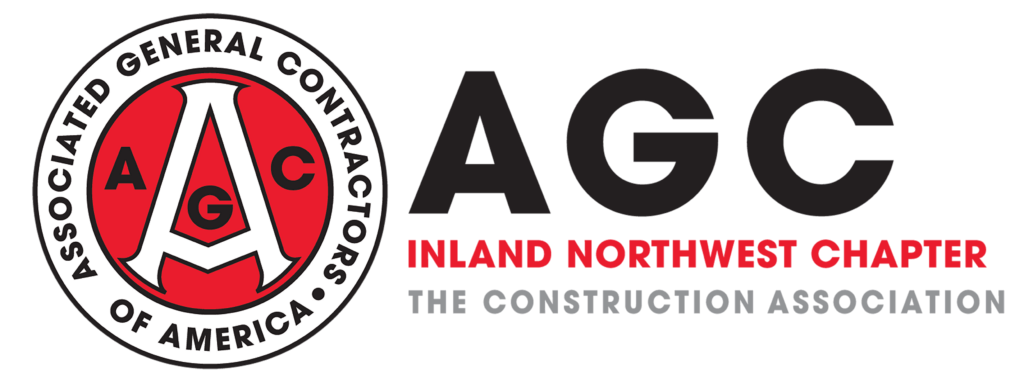Key Employment Law Changes Impacting Washington Contractors
Washington’s 2025 legislative session brought several key policy changes that will directly impact the commercial construction industry. Below are a few important laws taking effect next week, July 27. We’ll continue to share updates on additional legislation rolling out later this year and into 2026.
Employment Laws You Need to Know
Below is a summary of the most urgent new laws that will take effect on July 27, 2025, what you need to know, and where to take action.
Employment of Minors – ESHB 1644
One of the most concerning new laws is ESHB 1644, which addresses the hiring of minors and imposes stricter penalties for safety violations. Most notably, the law includes a serious provision that bars contractors from bidding on public works if their minor work permit has been revoked—regardless of the reason. Although this law doesn’t take effect until January 2026, any permit revocation this year could jeopardize your eligibility to bid in the future.
Please review the attached letter before making any decisions about hiring minors.
Update to Equal Pay and Opportunities Act (EPOA):
A new amendment offers relief for job posting violations. From July 27, 2025, to July 27, 2027, employers can cure noncompliant postings within 5 business days of written notice—if corrected (including on third-party sites), no penalties or damages apply.
Other changes:
- Unauthorized digital ads no longer count as “postings.”
- Fixed wages must list a single amount—not a range.
- Statutory damages now range from $100–$5,000 (not a flat $5,000), with courts weighing factors like willfulness, repeat offenses, employer size, and deterrence.
- The Department of Labor and Industries now has administrative enforcement authority.
Bottom line: Still disclose wage and benefits in job postings, but now you have a short window to fix mistakes before facing penalties.
Stricter Rules for Personnel File Access:
Employers must now provide personnel files or discharge statements within 21 days of a written request. Failure to do so can lead to legal action and up to $1,000 in penalties, plus attorneys’ fees.
The law also clarifies that “personnel files” include items like applications, evaluations, discipline records, accommodation docs, payroll, and agreements, if they exist.
Bottom line: Treat all requests seriously and respond promptly—noncompliance can trigger litigation.
Restrictions on Requiring Driver’s Licenses
Unless driving is one of the essential functions of an employee’s job or is related to a legitimate business purpose for a position, it is now unlawful for an employer to: (a) require a valid driver’s license as a condition of employment; or (b) include a statement in a job posting for a job opening that an applicant must have a valid driver’s license. Under the new law, a complainant may recover statutory damages of $5,000 per violation, and the Department of Labor and Industries may recover civil penalties of up to $1,000.
Key Takeaway: Employers should review their job descriptions and postings to ensure compliance.
Washington Mini-WARN Act
Washington has enacted its own version of the federal WARN Act, requiring private employers with 50+ full-time employees (vs. 100 under federal law) to give 60 days’ written notice before a business closure or mass layoff. Notice must go to:
- The Employment Security Department, and
- Affected employees or their union rep.
The notice must state if the closure/layoff is permanent or temporary, the expected dates of the event, and when individual separations will occur.
Violations can result in up to 60 days’ back pay and benefits, plus $500 per day in penalties under the state law.
Key Takeaway: Washington employers with 50 or more employees contemplating layoffs or closures must carefully review their obligations under this new law and should consult legal counsel to ensure compliance.
Paid Sick Leave Expanded for Immigration Proceedings:
Employees can now use paid sick time to prepare for or attend immigration proceedings for themselves or a family member. Employers must accept certain documents or a written statement as proof.
Action step: Update sick leave policies to include this new qualifying reason.
Criminal History Protections – EHB 1747
Employers may not conduct criminal background checks until after making a conditional job offer. Once a check is completed, employers must wait two business days before taking any adverse action, giving applicants a chance to respond. Employers also may not take adverse action based solely on arrests or juvenile convictions. This law carries significant penalties—up to $15,000 per violation for repeat offenses.
Key takeaways:
- Background checks must follow a conditional offer and 2-day response window.
- Arrests and juvenile convictions can’t be the sole basis for adverse action.
- Update hiring processes and train managers to comply.
For additional information on any of these new laws or if you need assistance on how to implement, please reach out to Josh Monroe, Director of Workforce Development - jmonroe@nwagc.org or at 509.862.9978
